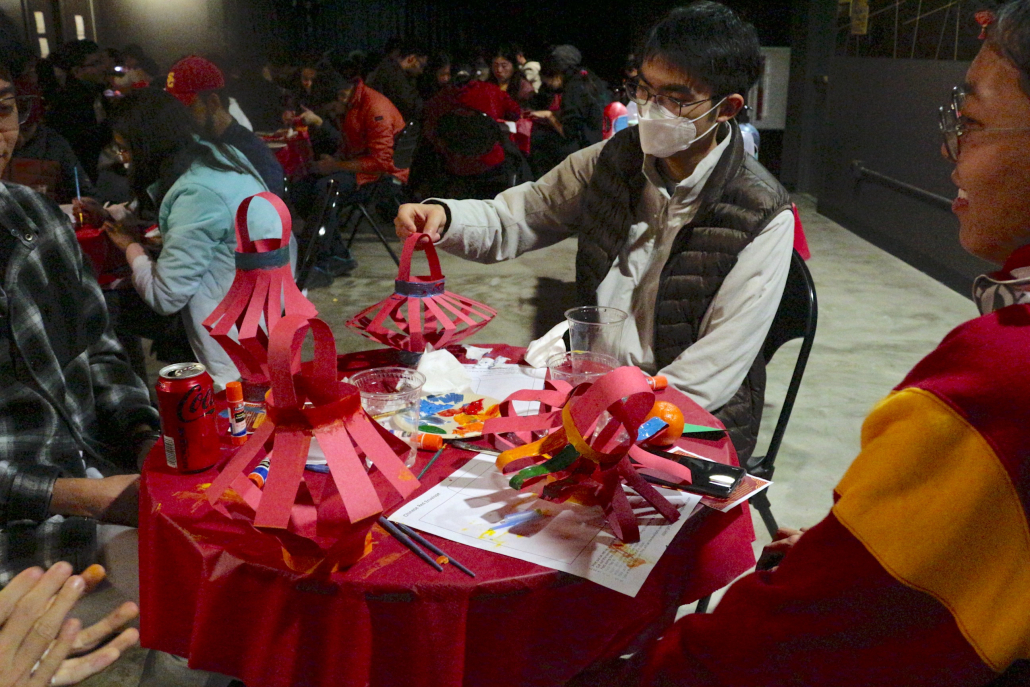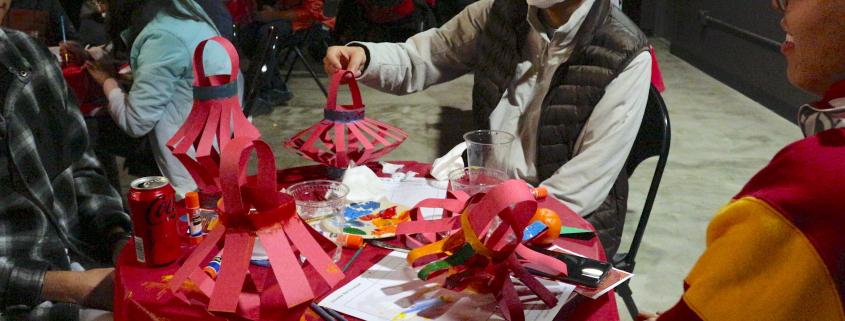Luck, food and nostalgia with Late Night SC

Students gathered for the Late Night SC’s celebration of the Lunar New Year, welcoming the year of the rabbit — in Vietnam, the year of the cat — in the basement of Sample Hall Saturday. Typically celebrated by East Asian cultures, the Lunar New Year began Sunday, launching 15 days of festivities and traditions.
Andrea Alba, a student programs advisor at the Division of Student Affairs, organized the event. She said she wanted to create a safe environment for students to celebrate and learn about the Lunar New Year.
“I did create info sheets of Lunar New Year, and I just talked a little bit about what the celebration is, who celebrates it and just a fun fact about the Year of the Rabbit,” Alba said.
The new year — associated with peace, prosperity and longevity — was welcomed by many tired students who said they hoped for peace from their professors, prosperity in their grades and longevity for their mental health.
Despite celebrating Lunar New Year away from home for the first time, Raymond Meng, a freshman majoring in computer science, said he’s glad to be celebrating with a bunch of his friends. Meng reminisced on some of his favorite New Year’s traditions.
“Normally, I’m with my family and we make dumplings, we’ll go out to dinner and chill,” Meng said.
Food is a central part of the Lunar New Year celebrations. Michelle Lee, an exploratory freshman, said traditional Korean foods include tteok-guk.
“It’s basically just rice cakes in a soup with eggs and like seaweed flakes, like veggies and stuff like that,” Lee said.
In Korea, the dish is typically eaten in the morning and represents luck and longevity, Lee said. Another Korean tradition is dressing up in hanbok, the country’s traditional clothing, to talk with family elders about New Year’s hopes and aspirations, and — in Li’s words — “get money from them.”
Money is a common denominator among East Asian cultural celebrations of the Lunar New Year. While decorating his lantern, Kevin Wu, a freshman majoring in journalism, discussed the Chinese tradition of hóngbāo, in which children receive money in a small red envelope from family elders.
“Literally all we do is make money and eat good food for our day,” he said.
Before entering the event, students received mandarin oranges as a snack, a tradition that began in southern China, giving out mandarin oranges is meant to symbolize well-wishes and prosperity because of their lucky orange hue. Students made lanterns out of red construction paper, which symbolizes luck, happiness and prosperity in Chinese culture.
Meng elaborated on several other items that signified luck or bad luck in China, including numbers like “four, which is unlucky because if you pronounce it in Chinese it sounds like the word for death.”
To close out the night, students drank boba. Over a cup of matcha milk tea, Meng was asked about his favorite Lunar New Year activity.
“Honestly, just chilling with the fam,” Meng said. “Reminiscing about the past year, talking about hopes of what we’re going to do.”

